What Houzz Pros Learned from Running a Business in 2020
Four professionals reflect on the ups and downs of working in the renovation industry during an extraordinary year
2020 was a year like no other in our recent history, with the global pandemic forcing us to live and work in unprecedented ways. Here, four pros on Houzz share their thoughts on what they’ve learned from the experience, how it’s reshaped their businesses, and what it means for how renovation professionals might work in the future.
Digital tech opens up possibilities
The ability to communicate remotely was crucial for many of our professionals this year. “Making telephone calls as opposed to just emailing was important, as I think everyone was feeling a little stunned with what was happening,” Fiona says. “It was quite reassuring to talk on the phone or make regular video meetings to maintain an element of normality and positivity.”
“I suppose what this year has taught us most is that we can carry out initial consultations with prospective clients, and conduct some design review meetings with existing clients, using technology platforms,” Brian O’Tuama of Brian O’Tuama Architects agrees. “We’ve had many such meetings over the lockdown period and, in the case of prospective clients, have found it so much easier to begin to get to know one another when we can see one another.”
Brian is also appreciative of how digital technology can aid the design process. “Technology has also allowed us to have ‘walk-throughs’ of homes with prospective clients, using their laptops or tablets,” he says. “It’s not quite the same as walking through spaces in person, but we’ve found it a very useful way to get a quick first impression.
“In the past, we’d initially have spoken on the phone, then followed that up with a visit to meet in person and view the property, so the ability to meet virtually has been a big time-saver for all concerned,” Brian continues. “With so many people working from home, it’s been very useful in terms of scheduling a mutually convenient time to meet.”
A management tool like Houzz Pro is a good option for scheduling video meetings and communicating more effectively with clients.
The ability to communicate remotely was crucial for many of our professionals this year. “Making telephone calls as opposed to just emailing was important, as I think everyone was feeling a little stunned with what was happening,” Fiona says. “It was quite reassuring to talk on the phone or make regular video meetings to maintain an element of normality and positivity.”
“I suppose what this year has taught us most is that we can carry out initial consultations with prospective clients, and conduct some design review meetings with existing clients, using technology platforms,” Brian O’Tuama of Brian O’Tuama Architects agrees. “We’ve had many such meetings over the lockdown period and, in the case of prospective clients, have found it so much easier to begin to get to know one another when we can see one another.”
Brian is also appreciative of how digital technology can aid the design process. “Technology has also allowed us to have ‘walk-throughs’ of homes with prospective clients, using their laptops or tablets,” he says. “It’s not quite the same as walking through spaces in person, but we’ve found it a very useful way to get a quick first impression.
“In the past, we’d initially have spoken on the phone, then followed that up with a visit to meet in person and view the property, so the ability to meet virtually has been a big time-saver for all concerned,” Brian continues. “With so many people working from home, it’s been very useful in terms of scheduling a mutually convenient time to meet.”
A management tool like Houzz Pro is a good option for scheduling video meetings and communicating more effectively with clients.
Time at home allows people to refocus
“Another result of lockdown for us has been a big increase in the number of enquiries we’re receiving about new projects,” Brian says. “Most of the clients we work with are busy professionals, and working from home has meant they’ve been spending significantly more time in their properties than they normally would. For the first time, they’ve been able to focus on what doesn’t work for them, what their dream home might be like and, in some cases, what they need to change to allow them to continue to work from home, even part-time, in the future.”
Bhavin Taylor of Bhavin Taylor Design emphasises how vital it is to make a home a happy place. “There’s nothing worse than being stuck indoors and disliking your surroundings,” he says, and stresses the importance of professionals for helping with this to take away the pressure.
You might also like 7 Questions to Ask Clients Before They Start a Renovation.
“Another result of lockdown for us has been a big increase in the number of enquiries we’re receiving about new projects,” Brian says. “Most of the clients we work with are busy professionals, and working from home has meant they’ve been spending significantly more time in their properties than they normally would. For the first time, they’ve been able to focus on what doesn’t work for them, what their dream home might be like and, in some cases, what they need to change to allow them to continue to work from home, even part-time, in the future.”
Bhavin Taylor of Bhavin Taylor Design emphasises how vital it is to make a home a happy place. “There’s nothing worse than being stuck indoors and disliking your surroundings,” he says, and stresses the importance of professionals for helping with this to take away the pressure.
You might also like 7 Questions to Ask Clients Before They Start a Renovation.
Flexibility is key
Bhavin has found that adaptability and flexibility have been major assets this year. “As designers, we all want to see our initial design carried out to completion and for things to work exactly how we’ve spent hours planning,” he says. “However, when working on projects during a pandemic, things are never straightforward and multiple curve balls are thrown at you. Adaptability has allowed me to overcome many a bump in the road.”
“I think when you’re faced with so much uncertainty, it does make you quite resilient and forces you to be very organised,” Fiona agrees. “When working on a project, making sure you have options and alternatives is key, especially in this new climate.
“At times, suppliers have really struggled with lead times, so you need to manage client expectations and ensure you communicate this and manage it accordingly,” she says. “Your scheduling has to be detailed and you have to plan ahead to accommodate these changes – sourcing and ordering items far earlier than before in order to keep projects on track.”
Bhavin has found that adaptability and flexibility have been major assets this year. “As designers, we all want to see our initial design carried out to completion and for things to work exactly how we’ve spent hours planning,” he says. “However, when working on projects during a pandemic, things are never straightforward and multiple curve balls are thrown at you. Adaptability has allowed me to overcome many a bump in the road.”
“I think when you’re faced with so much uncertainty, it does make you quite resilient and forces you to be very organised,” Fiona agrees. “When working on a project, making sure you have options and alternatives is key, especially in this new climate.
“At times, suppliers have really struggled with lead times, so you need to manage client expectations and ensure you communicate this and manage it accordingly,” she says. “Your scheduling has to be detailed and you have to plan ahead to accommodate these changes – sourcing and ordering items far earlier than before in order to keep projects on track.”
We can do things differently
One of the most significant shifts this year has been how and where we work, with lockdown forcing many of us to set up a desk space at home.
“We’ve all realised that working from home is much more possible and efficient than we thought it would be, so some form of working from home looks like becoming much more common,” Cat Hoad of Absolute Project Management says.
“Accordingly, whatever space you work in at home, take some time and give some thought to making it as comfortable and tranquil as possible – try to ensure you have a comfy chair, good light, some convenient storage and some things to look at from your desk that give you pleasure – this could be artworks, photos or other ‘objets’,” she says. “I’d really recommend ensuring you have a couple of plants in your working space – they have lots of positive qualities, not least in helping to purify the air where you’re sitting.”
One of the most significant shifts this year has been how and where we work, with lockdown forcing many of us to set up a desk space at home.
“We’ve all realised that working from home is much more possible and efficient than we thought it would be, so some form of working from home looks like becoming much more common,” Cat Hoad of Absolute Project Management says.
“Accordingly, whatever space you work in at home, take some time and give some thought to making it as comfortable and tranquil as possible – try to ensure you have a comfy chair, good light, some convenient storage and some things to look at from your desk that give you pleasure – this could be artworks, photos or other ‘objets’,” she says. “I’d really recommend ensuring you have a couple of plants in your working space – they have lots of positive qualities, not least in helping to purify the air where you’re sitting.”
People are resilient
There have been numerous things to think about when it comes to maintaining staff wellbeing this year, and many firms have had to make tough decisions. For Cat, the situation has made her appreciate her team’s resilience and perseverance.
“Even with some of us having difficult personal circumstances, during the first lockdown we managed to get five projects [that were already underway] finished, despite late delivery of fittings, difficulties in getting workers on site and rejigged timetables,” she says.
“In terms of creativity and flexibility, the three remaining members of the team who weren’t furloughed invented and marketed a new business product within three weeks. And the others, who I was very sad to have to furlough, used their time really effectively – one finished an online course and one immersed herself in digital marketing training.”
There have been numerous things to think about when it comes to maintaining staff wellbeing this year, and many firms have had to make tough decisions. For Cat, the situation has made her appreciate her team’s resilience and perseverance.
“Even with some of us having difficult personal circumstances, during the first lockdown we managed to get five projects [that were already underway] finished, despite late delivery of fittings, difficulties in getting workers on site and rejigged timetables,” she says.
“In terms of creativity and flexibility, the three remaining members of the team who weren’t furloughed invented and marketed a new business product within three weeks. And the others, who I was very sad to have to furlough, used their time really effectively – one finished an online course and one immersed herself in digital marketing training.”
Positive change is possible
Cat is positive about how the pandemic has increased our understanding of the effect we have on our planet. “Fewer people out and about meant CO2 emissions were greatly reduced around the world and wildlife came back to areas it had abandoned – birdsong in central London, for example,” she says. “It’s shown us we can effect positive change on the environment if we really want to.
“In the interior design world, you can help by choosing sustainably sourced and produced products, and [having] a long-term goal in mind. A simple way of doing this is by selecting natural and organic textures and colours, adding plants to the home, and trying to upcycle anything you have to get rid of (we use Freecycle to clear unwanted fittings and furniture from our sites),” Cat says.
Cat is positive about how the pandemic has increased our understanding of the effect we have on our planet. “Fewer people out and about meant CO2 emissions were greatly reduced around the world and wildlife came back to areas it had abandoned – birdsong in central London, for example,” she says. “It’s shown us we can effect positive change on the environment if we really want to.
“In the interior design world, you can help by choosing sustainably sourced and produced products, and [having] a long-term goal in mind. A simple way of doing this is by selecting natural and organic textures and colours, adding plants to the home, and trying to upcycle anything you have to get rid of (we use Freecycle to clear unwanted fittings and furniture from our sites),” Cat says.
It’s OK to take a breath
The pandemic also forced many people to take things more slowly, as Bhavin explains. “As a small business owner, it can be really hard to switch off, as you’re always under pressure to find new clients, keep the business moving, and ensure the next pay cheque is coming – all of which can be extremely stressful,” he says. “However, this year, with its periods of lockdown, has highlighted that there will be situations that are out of my control and that it’s OK to slow down or even stop occasionally.
“This has been quite difficult for me to get my head around (and I’m sure many other people have struggled with this),” he says, “but it’s actually a good practice to learn, especially for my health and mental wellbeing, and one that I hope I’ll be able to keep up going forwards.”
“I’ve realised that slowing down and being forced to do less isn’t such a bad thing,” Cat agrees. “It’s made me approach things differently, and I’ve realised that working from home and sharing the broadband with my husband and two children is actually possible.”
Tell us…
What are your reflections on 2020? Share your thoughts in the Comments.
The pandemic also forced many people to take things more slowly, as Bhavin explains. “As a small business owner, it can be really hard to switch off, as you’re always under pressure to find new clients, keep the business moving, and ensure the next pay cheque is coming – all of which can be extremely stressful,” he says. “However, this year, with its periods of lockdown, has highlighted that there will be situations that are out of my control and that it’s OK to slow down or even stop occasionally.
“This has been quite difficult for me to get my head around (and I’m sure many other people have struggled with this),” he says, “but it’s actually a good practice to learn, especially for my health and mental wellbeing, and one that I hope I’ll be able to keep up going forwards.”
“I’ve realised that slowing down and being forced to do less isn’t such a bad thing,” Cat agrees. “It’s made me approach things differently, and I’ve realised that working from home and sharing the broadband with my husband and two children is actually possible.”
Tell us…
What are your reflections on 2020? Share your thoughts in the Comments.



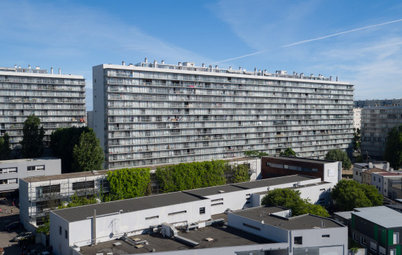
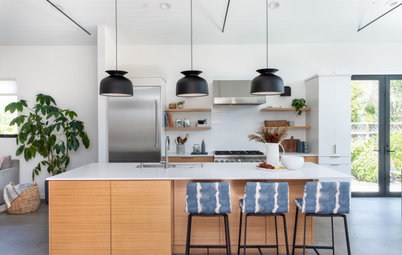
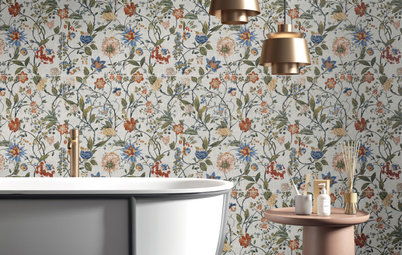
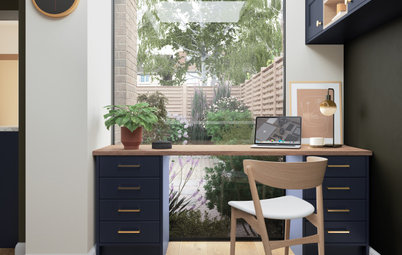
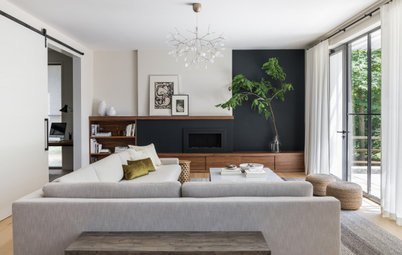
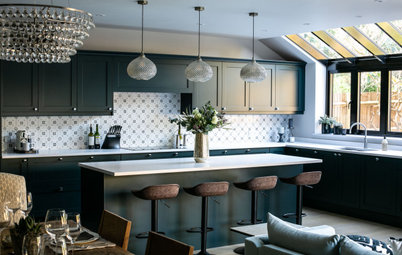
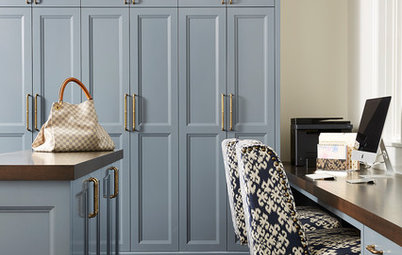
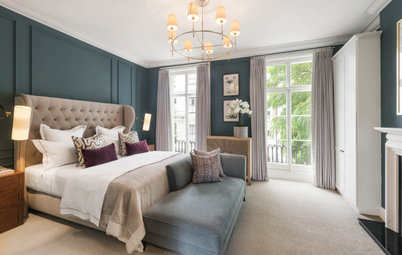
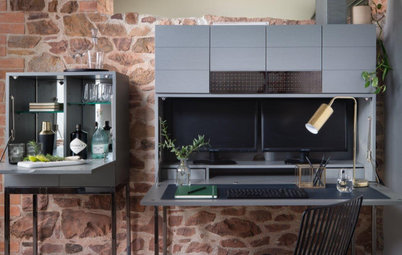
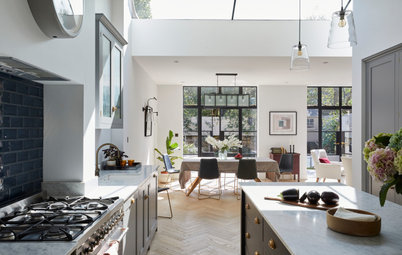
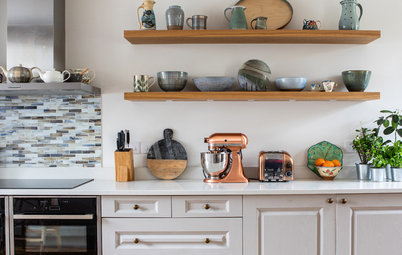

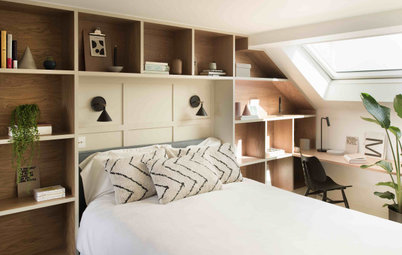
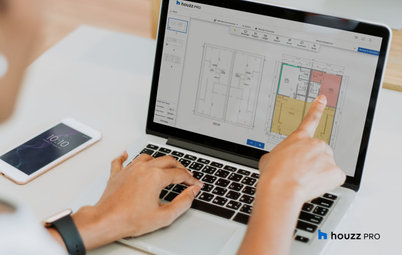
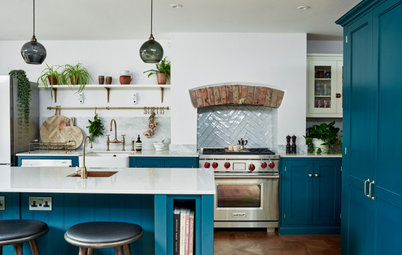


For interior designer Fiona Duke, of Fiona Duke Interiors, the first few weeks of the pandemic were a time to address uncertainty.
“The changes that were taking place around us were all pretty daunting, but after the initial shock of the situation, I wanted to try to focus on how to keep the momentum going for the business,” she says. “We needed to decide how we could continue to work through this and manage what we were facing.
“Communication was key,” she continues. “Without being able to physically meet with clients and suppliers, I had to make sure regular contact was being made and updates given on deliveries and progress. Projects such as kitchen renovations were stopped midway through, so for some it was about trying to ensure clients had in what they needed to get them through the coming months.”